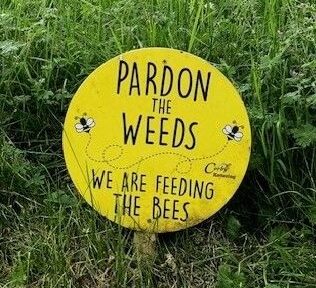Our Commitment: Maintaining biodiversity, especially for sensitive or threatened habitats, is fundamentally important to protecting flora and fauna, preserving local culture, combating climate change and supporting a stable economy. Post currently has owned and operated production sites and warehouses and distribution centers in North America and the United Kingdom. Post maintains a biodiversity assessment which evaluates the proximity of our sites to protected areas and areas of high biodiversity using the following recognized data sources:
- In this Section
- Environmental Data
- GHG Emissions
- Water Stewardship
- Biodiversity and Deforestation
- Sustainable Packaging
- Waste Minimization
- Collective Action
Our Progress: Post conducts an annual biodiversity assessment. In fiscal year 2024, we found that 15% of production sites are within 10 miles of sensitive habitats with the following breakdown (note: some sites can be in proximity to more than one protected area):
- 11% within the large North American Coastal Plain in the Southeast and eastern U.S. or California Floristic Province
- 5% for the WWF protected area indicator 6.1
- 3% near Great Rivers Confluence or the Niagara River Corridor
The results of our assessment, combined with our environmental data, is used to inform decisions on further assessment to confirm no direct or indirect impacts, actions to monitor and mitigate any future impacts, and investments including consideration for prioritizing local community engagement initiatives.
Post also completes an annual screening of global ingredient and packaging supplier locations to evaluate proximity to areas of high biodiversity. Based upon the fiscal year 2024 assessment, Post has identified the following breakdown of supplier locations by proximity:
| Proximity | Current Supplier Locations |
|---|---|
| High | 1% |
| Medium | 11% |
| Low | 88% |
Deforestation
Forests are key to preserving biodiversity of plants and animals and fighting climate change. They also provide livelihoods to millions of people around the world. We are determined not only to manage deforestation risks in our supply chains, but to protect and restore forests and other critical natural ecosystems. Post maintains a No Deforestation Policy and our aspiration is to source 100% of our global commodities with no deforestation impacts.
Based upon our current evaluation of potential deforestation impacts, Post has the following status:
Palm Oil – Since 2015, Post has participated in the Roundtable on Sustainable Palm Oil (RSPO) and completed RSPO’s annual Communication On Progress. We are a very small user of palm oil and only directly purchase RSPO mass-balanced certified palm oil ingredients.
Soy – All soy oil is directly sourced by Post for use in manufacturing products and a limited amount of soy protein isolate used by our cereal business are from soybeans grown and processed in North America. All soybean meal for feeding poultry is sourced from within the United States. Eggs are directly sourced from North American suppliers and may use soybean meal for chicken feed. Post will also assess and monitor other trace quantities of soy in our value chain.
Beef – All beef commodities are directly sourced by Post and are North American produced.
Pulp and Paper – A majority of our suppliers of corrugated and folding cartons have publicly available sustainable forestry and wood fiber procurement related policies, ambitious commitments to only source recovered fiber or virgin materials from sustainably managed forests, and mature programs to maintain chain of custody and sustainable forestry certifications, such as Sustainable Forestry Initiative® (SFI®), Forest Stewardship Council® (FSC®), and Programme for the Endorsement of Forest Certification™ (PEFC™). These suppliers also voluntarily report on their deforestation governance and performance through the annual CDP Forests questionnaire. Post also has a small amount of spend with suppliers providing specialized pulp and paper products (e.g., pulp trays), which will be evaluated and monitored as part of this policy commitment.
Post also completes and annual screening of global ingredient and packaging supplier locations and our global production sites to evaluate potential for deforestation impacts using the new WWF Biodiversity Risk Filter Tool. Based upon the assessment, Post has identified the following breakdown by deforestation proximity:
| Deforestation | Current Supplier Locations | Production Sites |
|---|---|---|
| High | 0% | 0% |
| Medium | 6% | 7% |
| Low | 94% | 93% |

We are also using the HowGood platform, which allows our organization to leverage traceability data to better understand environmental and social impacts and opportunities related to our global sourcing and individual products. HowGood is a leading sustainability intelligence platform for food companies with a database of over 90,000 emissions factors and the ability to comprehensively evaluate and prioritize individual crops we source globally across key environmental and social metrics, including:
- GHG emissions (scope 3 and FLAG)
- Blue water usage
- Land occupation and land use change (# of crops/hectare/crop cycle; % of natural habitats)
- Soil health
- Biodiversity
- Pesticide and fertilizer usage
- Labor risk
- Animal welfare
In addition, we are in the process of activating and piloting the FieldScope module, which will provide the ability to evaluate field-level data and farming practices. The module facilitates collection and analysis of on-farm data related to:
- Crop details and soil characteristics
- Inputs (fertilizers, crop protection)
- Field operations (machinery, fuel, energy)
- Irrigation
- Carbon emissions and intensity
- Farm settings (country and climate)
The platform also builds our product footprinting capacity with the ability to evaluate product-level impacts and opportunities more efficiently and at scale across the broad range of our portfolio. This includes collaborating with several of our key customers that are also using the platform to evaluate select products.
